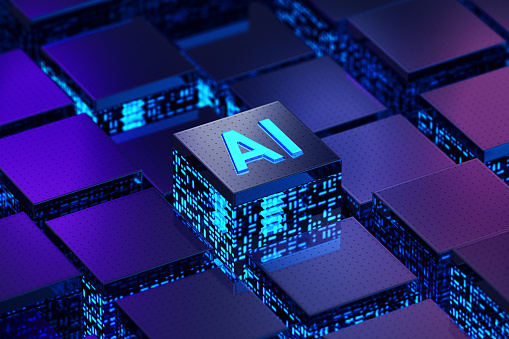Change is unavoidable. Similarly, technology has changed the way the world operates. There has been a vast development in technology in the past two decades; Blockchain technology and artificial intelligence (AI) have been leading these developments.
AI and blockchain are still in their infancy, but the future looks promising for projects in these fields. Global industries and businesses aim to enhance their security, data management, improved user experience, manufacturing, etc. and as a result, they have already implemented or have started to invest hugely in these technologies.
Today, a variety of ecosystems use AI-powered apps, including recommendation systems (E-commerce and Social media), self-driving cars (Tesla), speech recognition (Alexa & Siri), and web search engines like Google. Additionally, innovators in this niche are working on more intricate integrations resulting in the rise of AI-powered bots to execute functions that would have needed human interference.
On the other hand, blockchain technology provides global industries with unprecedented transparency, trustlessness, and lower transaction costs. The technology is already widely used and transforming industries such as global trade and logistics, finance, gaming, and data management. Regardless, technology is ushering in a new era of data privacy, data security, and personal data control.
While the two technologies have distinct advantages and are still in their early stages, firms are already marketing the convergence of AI and blockchain technologies in their respective industries. Could combining the two technologies result in the world’s most technologically enabled decision-making and problem-solving solutions, which are practically tamper-proof, secure, and accessible to everyone on the planet?
Some companies are already developing solutions that leverage the combination of AI and blockchain technology, providing realistic solutions to problems that span multiple industries. The following section discusses how the convergence of AI and blockchain solutions is transforming global industries.
The Ascension of AI and Blockchain Technologies in Global Industries
One of the most common applications of AI and blockchain is in the enterprise and manufacturing industries. AI and blockchain solutions have been used to digitize previously paper-based supply chains, making data decentralized, easily shareable, and trustworthy, while also adding intelligence and automation to transaction execution. This enables database administrators to standardize the deployment of integrity constraints in order to generate more structured data schemes with blockchain and use AI models to increase efficiency, automatically monitor manufacturing, and detect defects. The data is then shared in real-time with the network using blockchains, lowering the overall cost of transaction fees in traditional manufacturing industries.
AI and blockchain can also be used to improve the visibility and traceability of drugs in the supply chain in the healthcare industry. A blockchain-based solution leveraging AI provides a transparent channel for universal healthcare information stored on blockchains, granting and monitoring access, and effective information use. Patients’ data stored on the blockchain can be easily retrieved by AI models and submitted to a global data network, allowing patients to access their medical data from anywhere on the planet. This type of solution benefits the life sciences industry by accelerating treatment workflows, increasing clinical trial success rates, and improving the patient experience by predicting diagnosis, treatment, prognosis, and outcome.
Finally, the integration of AI and blockchain technology is critical in managing large amounts of data (big data). Blockchain technology’s decentralization allows data to remain private, secure, and user-controlled. When AI models are applied to this data, the possibilities are endless. Data collected from internet of things (IoT) devices and factory machines could lead to AI models detecting anomalies, points of failure, recognizing flow, violating the privacy, and performing other analyses to make the devices more efficient.
Source link













